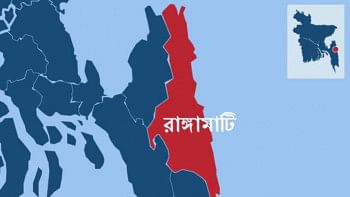Indigenous fishes face extinction in Barind tract
Indigenous fish species, particularly the small ones, are on the verge of extinction due to sharp decline in their breeding and feeding grounds in the vast Barind tract.
The breeding and feeding grounds have been drastically reduced due to siltation in the big rivers and their tributaries, and other water-bodies and wetlands, and promotion of modern fish culture in closed water-bodies.
Besides, frequent and indiscriminate use of harmful pesticides and chemical fertilisers in agricultural land, water-bodies and wetland has aggravated the situation.
Various organisations, including the Department of Fisheries and the Department of Zoology of Rajshahi University, conducted extensive researches and found 12 major causes for the ever-decreasing fishery resources in the region, particularly in the major rivers.
Referring to the research findings, some investigators opined that around 65 native fish species have become rare and at least 10 species vanished in the region.
Prof Akhter Hossain of fisheries department highlighted various positive aspects of using open water-bodies in conserving the native fish species and said the open water-bodies are also important for generating employment in fish farming sector.
In addition to nutritional aspects, the open water fisheries have been contributing a lot to maintain natural ecosystem and wetland habitats along with an aquatic biodiversity, Prof Akhter added.
He said excessive use of modern technologies in both agriculture and fish culture has contributed to the decline in the feeding and breeding grounds of the native fishes.
He viewed that frequent and indiscriminate use of pesticides and chemical fertilisers in agricultural land have directly or indirectly been destroying the open and culture water fishery resources and fish food organisms of the wetland and floodplains.
Experts mentioned that open water fishery resources in the region are being neglected for long in terms of investment as well as general attention to the sector.
Fishery resources of the Padma river along with other water-bodies and floodplains need to be preserved for protecting these species of fish that are native to the country.
To this end, a sound management for rational utilisation of the fisheries resources has become a necessity, they said.
Executive Director of Barind Multipurpose Development Authority Ahsan Zakir said there are many small rivers, canals and beels in the region which now become green paddy fields every dry season due to massive siltation.
The huge number of water bodies could be one of the effective means of large-scale fish farming side by side with protecting the endangered fish species, if the water bodies are transformed into water-reservoirs after proper excavation and re-excavation.
Not only that, huge barren land of the high Barind tract could be brought under various crop farming fields, including paddy, using the conserved surface water round the year, which, Ahsan Zakir opined will reduce dependency on groundwater for irrigation purposes.

 For all latest news, follow The Daily Star's Google News channel.
For all latest news, follow The Daily Star's Google News channel. 



Comments